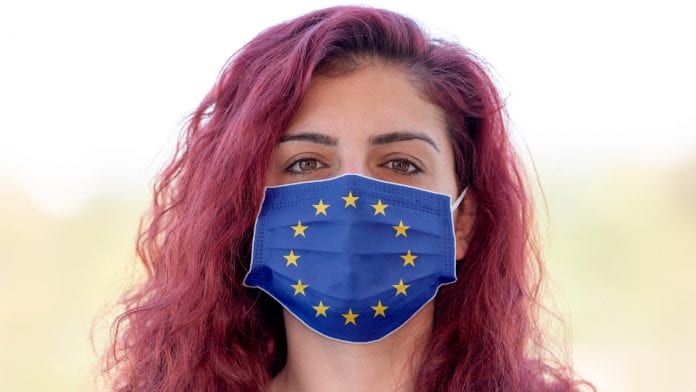
MEP Tomislav Sokol discusses the role of EU institutions in achieving more equal and accessible healthcare across the bloc.
MEP Tomislav Sokol (EPP) is a member of the Group of the European People’s Party (EPP Group), the largest and oldest group in the European Parliament. He is also a member of the Committee on the Internal Market and Consumer Protection, and a substitute in the Special Committee on Beating Cancer. In the context of the 15th European Patients’ Rights Day (which takes the theme of civic society’s and Patient Advocacy Groups’ role in achieving more resilient healthcare systems) and the Conference on the Future of Europe, Health Europa Quarterly, and the Active Citizenship Network (ACN) have collaborated on a series of interviews for this Special Feature.
In this interview, International Editor Clifford Holt spoke to Sokol about the commitment on the part of the European institutions in terms of providing impetus to the Conference, the importance of issues in the context of the Conference, and what areas need to be prioritised in terms of European healthcare.
In its resolution of 18 June 2020 on the position on the Conference on the Future of Europe, the European Parliament proposed that several thematic Citizens’ agoras reflecting the policy priorities should be held throughout the Conference process. How would you evaluate the European institutions’ commitment regarding providing impetus to the Conference and what do you think should be focused on in the immediate, medium, and long terms?
The Conference on the Future of Europe is a very important project in terms of bringing citizens closer to the European institutions to obtain feedback from them on what they consider to be priorities. The EU’s institutions can use this opportunity to emphasise their renewed commitment to Europe’s future success, and we know that it is important to have this level of co-operation to achieve that.
The Executive Board, which consists of representatives from the European Parliament, Council, and Commission is extremely important as they will act as the main driving force behind the whole process.
While this level of commitment is, of course, fundamental, it is also important to acknowledge that there are different visions of, and opinions on, what the Conference on the Future of Europe should achieve. First, there is the question of leadership. But perhaps a more fundamental question is how far should we go? And the main dividing line here is deciding what to do with the treaties. Should they be changed, or not?
The European Union is not without its problems, of course, and particularly as a result of the COVID-19 pandemic, and so an obvious solution to some of these problems should be to change the treaties, particular those pertaining to healthcare. One of the main reasons behind many of the problems we have experienced in terms of dealing with the pandemic, is the fact that healthcare is a primary national competence. As such, there is the argument to change the treaty. However, I personally believe there is no real will on the part of the Member States to do this, and a consensus is needed before any action can be taken.
The European Parliament is typically more ambitious than either the Commission or Council; it always wants to go further when it comes to strengthening the integration. But in terms of discussing the possibility of changing the treaty, it remains unlikely that this is something we will see for some time.
A third dividing line is perhaps related to the follow-up: what should be done once the exercise is completed and we have obtained information from European citizens? Again, we will undoubtedly see the European Parliament being much more ambitious and willing to go further, but we cannot do this without willingness on the parts of Member States.
The commitment is thus there to develop a vision for Europe’s future, but there are different visions, and while the Parliament is likely to be the institution that wants to go the farthest, the Council will probably be the one to hold back, and the Commission will, as usual, carefully try to find a balance.
The Conference is invited to reach conclusions that will provide guidance for Europe’s future direction. In light of the pandemic and the concerns of citizens as expressed by Eurobarometer data, our focus today rests solely on health-related issues. In your opinion, how central will these issues be in the context of the Conference?
The main problem with EU health policy in the past was that one didn’t exist, and if you look at the most important pieces of legislation in this area it is clear that they are typically ad hoc answers to problems that had emerged; there was no systematic policy. Now, things are changing. The COVID-19 pandemic has resulted in us thinking about having a systematic, coherent set of quality of health policies for the first time, which is extremely important.
I believe that healthcare will definitely have a much stronger role in comparison to a few years ago, and, of course, the Joint Declaration has provided a non-exhaustive list of possible themes which, in addition to healthcare, also include things like climate change, the digital transformation, the EU’s role in the world, and so on. But at the beginning of the European Parliament’s mandate, the focus was on institutional setup, such as the role of the Committee in electing the President of the Commission, the role of the European Parliament, and so on, all of which are things that are not essentially related to people’s everyday lives, even though they may be of interest to those of us in Brussels.
Now, the emphasis has shifted, because healthcare is the main topic and other topics now being discussed are related to healthcare in one way or another, such as the economy. Indeed, when we discuss the challenges facing the economy, we need to think about how we can recover from the consequences of the pandemic. And while, of course, the pandemic has had a devastating affect across the board, perhaps one positive to come out of it is that it has helped to place a much stronger emphasis on what people actually care about, which is how to increase and improve healthcare protection, how the EU can become better prepared for future crises, mobility between different Member States, how to ensure equal access to healthcare treatments and health and medical equipment, and so on. These practical issues will now be much more in focus than they were before COVID-19.
What priority themes do you believe the Conference should focus on in order to feed a reflection that could lead to a ‘European Health Union’, as advocated by the European Commission President Ursula von der Leyen?
The first topic is to help increase preparedness for health emergencies at the national level. We are aware that we didn’t respond very well, especially at the beginning of the crisis, after which time things became a little better. Now, however, we are experiencing challenges in terms of vaccine procurement, which demonstrates the need for a much better-developed system of preparedness to provide solutions and responses to public health emergencies. This could be achieved by strengthening the role of the current EU agencies and, moreover, potentially creating additional EU agencies with stronger powers. Developing the institutional framework on how to better respond to future public health risks is definitely one of the main priorities for us.
A second important point that should be a focus is ensuring equality in terms of access to healthcare. Healthcare standards across the EU differ significantly, and that reason alone means that it is impossible to speak of a ‘European Health Union’. For instance, citizens are at a 30-40% larger risk of dying from cancer in some Eastern parts of Europe than they are in Western countries and, in these same Western countries there is also a lot of work to do in terms of ensuring that all citizens are treated equally. That is, in some parts of the EU, healthcare provision, the health quality of the healthcare system, and health protection are much higher in some parts of the EU than in others, essentially resulting in first and second class citizens when it comes to health. Providing equal access to top quality healthcare is a problem that needs to be addressed, and that can be achieved by building infrastructure, for instance, as well as by helping to educate more healthcare professionals to prevent them from leaving their home countries to live and work in the Western countries where the quality and accessibility of healthcare is much higher.
Addressing these inequalities will be one of the biggest challenges for the European Union as a whole, and the EU can play a crucial role here because this is a problem that Member States cannot resolve by themselves.

The main problem with EU health policy in the past was that one didn’t exist, and if you look at the most important pieces of legislation in this area it is clear that they are typically ad hoc answers to problems that had emerged.
What do you predict/hope will come out of this process? Are there reasons to be optimistic (or indeed pessimistic) when it comes to achieving concrete repercussions from the Conference when it comes to the EU’s future?
It is easier to be optimistic if you do not have high expectations, and I do not believe that we will see profound changes to the EU’s overarching constitutional framework. This is because I do not believe that the common will is there on the part of the Member States to achieve that, particularly in terms of, for instance, changing the division of competencies between the EU and the Member States. Indeed, some Member States want part of the competencies to return to the national level, while others want stronger powers in some areas, and others still want certain competencies to return to the EU level. Thus, there is no common vision regarding the direction that the European Union should take, and that is perhaps the biggest problem.
Nevertheless, in a more positive light, I do believe that some things will come to be discussed more thoroughly now, especially in terms of relations with the media and of citizen engagement. Indeed, I believe that it is very important to engage citizens as much as possible because, currently, many people in many Member States are unaware of what the EU is doing – and the fact that many of these same people are critical of the EU’s efforts to provide enough COVID-19 vaccines for the population means that the EU’s image is not very positive. This needs to be changed, and to achieve that we need to engage people and get them to become more involved in the discussions that take place at the European level around a wealth of different topics, especially healthcare. We also need to enhance the transparency and visibility of our work, so that more citizens across the EU are aware of its importance.
In the framework of the XV European Patients’ Rights Day, this Special Feature on the Conference on the Future of Europe has been created by Cittadinanzattiva/Active Citizenship Network and realised in partnership with Health Europa Quarterly.

Tomislav Sokol
Member of the European Parliament (MEP)
European People’s Party (EPP)
tomislav.sokol@europarl.europa.eu
Tweet @TomislavSokol
www.europarl.europa.eu/meps/en/197417/TOMISLAV_SOKOL/home
This article is from issue 17 of Health Europa. Click here to get your free subscription today.








